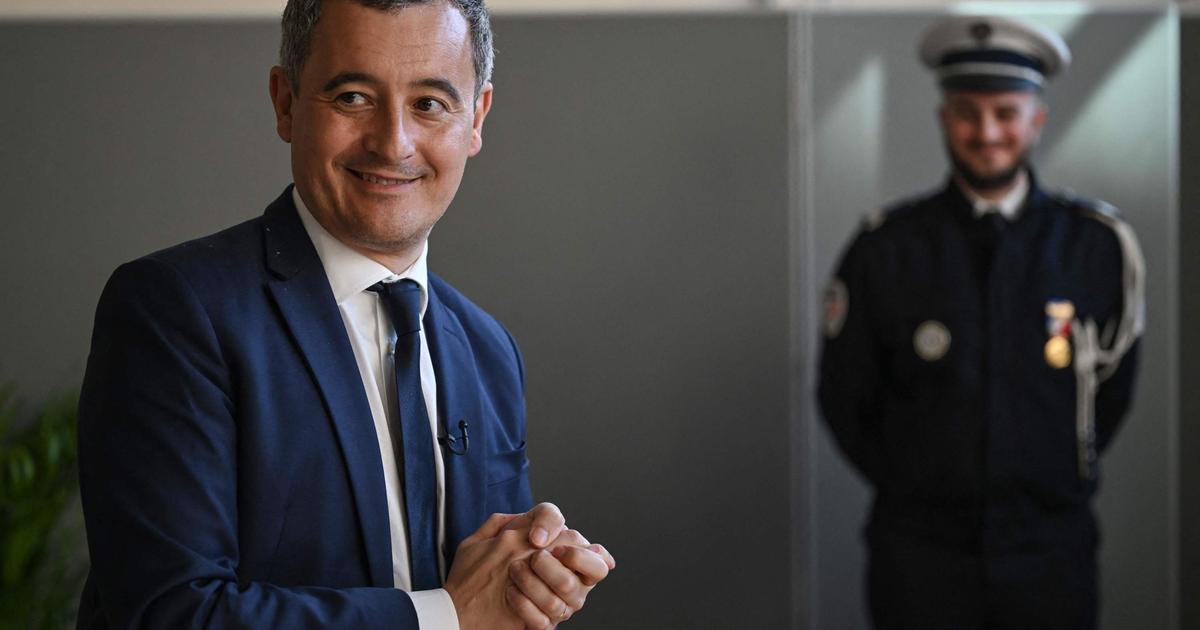March 18 marked a turning point in Spanish foreign policy in the Maghreb.
After almost five decades of neutrality in the Western Sahara conflict, that day it was learned that President Pedro Sánchez had decided to align himself with the Moroccan theses and support his proposal for autonomy for the disputed territory, considering it "the most serious, realistic and credible".
The reaction of Algiers, the main supporter of the Polisario Front, was immediate and it withdrew its ambassador from Madrid.
Five months later, the new Spanish policy in the Maghreb seems stuck.
While the fruits of the new spirit of mutual cooperation with Morocco are limited and progress is slow, there are no signs of resolution in the conflict with Algeria.
The King of Morocco, Mohamed VI, in a televised address to the nation this Saturday,
On April 7, President Sánchez wanted to visualize the opening of a new stage in relations with Morocco with a trip to Rabat in which he met with King Mohamed VI.
Both leaders thus put an end to the bilateral crisis that began with the visit to Spain of Brahim Gali, the Polisario leader, almost a year earlier.
In the Joint Declaration, both countries committed to a "road map" that should mark the relations between them.
“We are starting a new journey in our long shared history that should allow us to safely face the challenges, but also the multiple opportunities for the future”, proclaimed the Spanish president from Rabal.
More information
Mohamed VI describes the Spanish position in the Sahara as "responsible"
In the following weeks, Rabat made various gestures of goodwill towards Spain.
The border crossings of Ceuta and Melilla were reopened, in theory, closed for more than two years due to the pandemic.
In addition, Operation Crossing the Strait was reactivated, which allows millions of families of Moroccan origin residing in Europe to cross into Morocco with their own vehicles.
The previous year, Rabat prohibited Spanish ferries from docking at its ports, so the traffic was diverted to Portugal and France. Lastly, collaboration in the area of border control and irregular migration was intensified.
On Saturday night, Mohamed VI highlighted Spain's support for the Moroccan position on the Sahara, because, he said, "Spain knows the conflict very well."
The King of Morocco also highlighted the firmness of the Spanish Government: "This positive attitude has established a new phase in Spanish-Moroccan relations that have not been affected by regional conditions or internal political dynamics," he said, referring to the tensions between Spain and Algeria and the lack of support from Parliament for Sánchez's change.
Customs normalization, pending issue
However, there have been no new developments.
For example, the point of the Joint Declaration that set as a common objective “the full normalization of the movement of people and goods ... in an orderly manner, including customs control devices and people at land level and maritime."
In theory, both governments are negotiating its application.
Melilla already had a customs office with Morocco, but Rabat closed it in 2018 after more than six decades of operation in a move that was interpreted as an attempt to suffocate the city's economy.
In fact, dozens of companies have had to close their doors.
In Ceuta, it is about creating a customs post, since it never existed.
A car at La Frontera del Tarajal on May 21, 2022, in Ceuta (Spain).
Antonio Sempere (Europa Press)
Given the slow progress in bilateral relations, doubts are growing about the advisability of having modified a State policy without even having consulted the opposition or even United We Can, the PSOE's government partner.
“There has been progress, but not a qualitative leap in relations between the two countries.
It is true that several working groups have been set up.
Perhaps we will have to wait before being able to make a definitive assessment of the turn taken in March”, believes Haizam Amirah Fernández, a researcher at the Elcano Royal Institute.
Analyst Itxaso Domínguez is more skeptical: “Surely, it has been worth it to the Government, since Morocco is doing its dirty work on the migratory issue, as could be seen in the Melilla fence... Spain, since it has been said that Morocco has renounced the sovereignty of Ceuta and Melilla, but it is not true”, asserts Domínguez.
In the more symbolic sphere of gestures and attitudes, the change is not significant either.
While the Spanish Government lavishes itself when it comes to reaching out to Morocco, as evidenced by the praise from Pedro Sánchez or the Minister of the Interior, Fernando Grande-Marlaska, in the work of containing irregular migration, the Moroccan authorities maintain their attitude rough towards Spain.
For example, the president of the National Human Rights Council of Morocco, Amina Bouayach, blamed the Spanish authorities for the tragedy in Melilla for her “renunciation or hesitation” in helping the victims.
Outbreak of the conflict with Algiers
While relations with Morocco are going through a certain
impasse
, the situation is not very different in relation to Algeria, the other country that aspires to be the hegemonic power in the Maghreb.
The Algerian authorities have interpreted the sudden change in Spanish position regarding the conflict in Western Sahara as a "betrayal", and have acted accordingly.
Hours after learning about Sánchez's turn, Algiers called his ambassador, Said Moussi, for consultations, and he still has not returned.
In fact, Moussi was named the new ambassador in Paris last month, so the post of top diplomatic representative in Spain was left vacant, a sign that the conflict between Madrid and Algiers is going on for a long time.
"Confidence with Spain is broken," confides a source close to the Algerian government.
On June 8, the Algerian authorities took a new step in their reprisals against Spain by suspending the Treaty of Friendship, Good Neighborhood and Cooperation, which has framed bilateral relations for almost two decades.
Hours later, the Algerian financial association sent a letter to its members ordering them to freeze all transactions with Spanish entities, with the exception of those linked to the natural gas sector.
In practice, this meant the suffocation of bilateral trade, which affects approximately 200 companies.
Spanish exports to Algeria amounted to around 3,000 million euros in 2019, that is, 1% of the total volume.
The president of the Saharawi Arab Democratic Republic, Brahim Ghali, upon his arrival in Algeria in February, after convalescing in Spain.JOHN THYS (AP)
The reaction of the Spanish government was to resort to the EU, which came to its defense warning Algiers that there would be "consequences" if it blocked trade between the two countries, since it would be violating the association agreement with the Twenty-seven.
When at the end of July the bank management sent a new letter to its members to unfreeze the flows with Spain, it seemed that normality had returned.
"Algerians are very proud, and it hurt that normalization was presented in some media as a victory for Madrid," says a Spanish businessman with long experience in Algeria.
The next day, a note from the official news agency denied any kind of "reversal".
Several Spanish companies contacted by EL PAÍS have seen how some direct debits have been made, but a good part of the merchandise continues to be held in customs.
“We have chosen to export our products through third countries, such as Italy or Portugal.
And we will not change our strategy until things are clear”, confides the representative of a Catalan company.
The two Executives maintain complete silence on the matter.
"Between us and Spain, there is no exchange," Smail Namane, president of the Association of Algerian Economic Operators (ANOEA), told the local newspaper TSA Algerie.
Jamal-Eddin Bou Abdallah, president of the Algerian-Spanish Circle of Commerce and Industry (CCIAE), agrees with the diagnosis: “Some banks did reestablish, but the biggest problem is customs, which has not received orders to unblock.
I think there are open negotiations between both governments.
This situation is very detrimental to the Algerian economy, it cannot be prolonged.”
Natural gas supply concern
A temporary drop in the flow of Algerian natural gas exported to Spain raised fears of a supply cut right in the middle of the energy crisis caused by the war in Ukraine.
However, the “technical problem” was restored, and supply through the Medgaz pipeline was restored.
"Algeria has always fulfilled its contracts and has behaved in a very rational way," says Aurelia Mañé, a professor at the University of Barcelona.
However, the Algerian authorities have already warned that at the end of the current contract, prices will be renegotiated upwards.
In addition, they have also indicated that their preferred partner will now be Italy.
Before his resignation,
Prime Minister
Mario Draghi visited the Algerian capital and signed an agreement to increase the supply of gas to the transalpine country, which aspires to be the energy hub of southern Europe.
“I don't know how much of these changes are the result of the conflict, or are previous decisions.
The prices were going to be renegotiated upwards as well, and the commitment to Italy makes sense because it is better connected to central Europe through gas pipelines”, adds Mañé, who regrets some Spanish attitudes and statements in recent years that exuded a certain “contempt” towards the Algerian partner.
An employee works in the Zarzaitine gas field (Algeria)LOUAFI LARBI
Unlike Morocco, Algiers has never used the "migratory letter" to pressure.
According to Frontex, until July 17, the arrival of Algerians fell by 56% compared to 2021. “The Government has intensified border control to prevent people persecuted by justice from escaping by boat, and given an increase in drug trafficking drugs,” says analyst Otman Lahiani.
“Trump's decision to recognize Moroccan sovereignty in the Sahara broke the balance that had allowed Spain to have good relations with both Algeria and Morocco.
We have to find a new balance”, concludes Amirah Fernández.
50% off
Subscribe to continue reading
read without limits
Keep reading
I'm already a subscriber




/cloudfront-eu-central-1.images.arcpublishing.com/prisa/VFQFJYOVGFFAJOTNW2NNJRUS3I.jpg)










